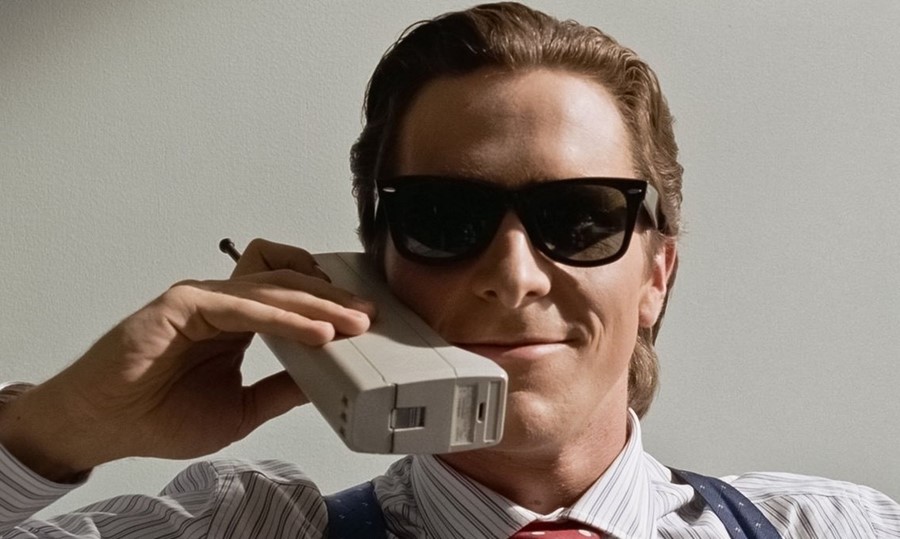Thinking of getting rid of your iPhone for good? Here’s everything you need to know
In the last 50 years, mobile phones have gone from giant, chunky monstrosities to teeny tiny computers which allow us to access all the knowledge in the universe. And now we can’t put them down. But with more and more of us becoming aware of the negative consequences our excessive use of smartphones has on our lives, the tide appears to be shifting.
In 2022, HMD Global, the maker of Nokia, saw sales increase by five per cent in the US — a trend which the company said was spreading to Europe. Meanwhile, smartphone sales decreased by 22 per cent. Over on Reddit, the r/dumbphone forum has 46,000 members and YouTube is littered with videos – predominantly by Gen Z creators – about giving up your smartphone. Clearly, growing numbers of young people are keen to ditch their phones entirely.
WHY GIVE UP YOUR SMARTPHONE?
Most people who choose to switch from a smartphone to a dumb phone are keen to take back control of their relationship with technology and break free from the shackles of constant digital communication. Others choose to forgo smartphone usage in the name of privacy concerns or want to be free from the steady stream of advertisements.
There’s also a positive correlation between heavy smartphone use and social anxiety. If we really do pick up our smartphones every five minutes, as science suggests, perhaps it’s no surprise that young people are experiencing higher levels of anxiety than ever. From an ‘amnesia epidemic’ to worsening concentration and mental health, are the disadvantages of keeping the entire universe in our back pockets beginning to outweigh the benefits?
According to Tanya Goodin, digital detox expert and author of My Brain Has Too Many Tabs Open and Off: Your Digital Detox For A Better Life, the benefits of giving up your smartphone, whether temporarily or permanently, are myriad. She cites calmness, productivity, improved focus, better sleep, heightened creativity and a better ability to live in the present moment as some of the main selling points.
While she doesn’t believe that everybody needs to give up their smartphone for good, Goodin says it’s worth assessing your relationship with your smartphone and taking regular breaks. “I don’t think we necessarily all need to get dumb phones, but, for some people, this may be the only way to set boundaries around their smartphone usage,” she says. “We’re all different, and you’ll know yourself if you need to give up your smartphone completely, or if you’re disciplined enough to follow certain rules.”
“We all hate the feeling of being with someone who picks their phone up and starts looking at it while we’re talking to them” – Tanya Goodin
HOW TO GIVE UP YOUR SMARTPHONE
Start slow
Goodin recommends starting with “mini pauses” rather than attempting to go cold turkey. We take for granted just how much we rely on our smartphones, and giving it up overnight likely won’t be practical.
“One way to implement mini pauses is to leave your phone behind when you do certain activities, like going to the shop for some milk or popping out for lunch when you’re at your desk,” says Goodin. “It’s one of those things where the anticipation is far worse than the actual experience. Most people say that not only is it much easier to do than you think, but the benefits are much greater too.”
Goodin also recommends setting physical boundaries with your phone, which are often much more effective than time-based boundaries (such as “I’ll only use my phone for ten minutes in the morning”) which can easily be broken. So, never take your phone to the toilet with you, for example, or make your bedroom a phone-free zone.
Another way to take mini breaks from your smartphone is to always prioritise people over your phone — and make this a value that you live by. “So, when you’re face to face with somebody, always make your device invisible,” says Goodin. “We all hate the feeling of being with someone who picks their phone up and starts looking at it while we’re talking to them.”
Set boundaries – and make sure to maintain them
OK, you’ve given the mini breaks ago and still want to go full luddite. You’ve found a dumb phone that suits your needs and you’ve locked your smartphone away in a drawer. The next port of call is to make sure your friends and family know that you won’t be reachable via the usual means – Instagram, WhatsApp, etc – at least not all the time.
“Communicate clearly with your loved ones about how they’ll be able to reach you,” says Goodin, “but then you have to be the one to maintain the boundary.” If you tell someone not to text you during the day, make sure you don’t reply when they inevitably do try to get in contact. “You have to have really firm boundaries,” Goodin adds.
Prepare yourself for a life off-grid
Finally, make sure you’re actually prepared to venture out without your smartphone. As much as we love to hate these pesky little devices, there’s no denying the convenience they offer, from allowing us to book a taxi at the click of a button to transferring money into our bank account at a moment’s notice. Plus, many of us even leave the house without our bank cards these days, thanks to the wizardry that is Apple Pay.
“Going without a smartphone does require more planning,” says Goodin. “So make sure you know where you’re going or that you won’t need to book an Uber.” This could look like writing down directions to where you’re heading before you leave the house, transferring more than enough money into your bank account, and saving all the phone numbers you may need to call.
The Teenage Guide to Digital Wellbeing by Tanya Goodin is published by HarperCollins on May 23.




